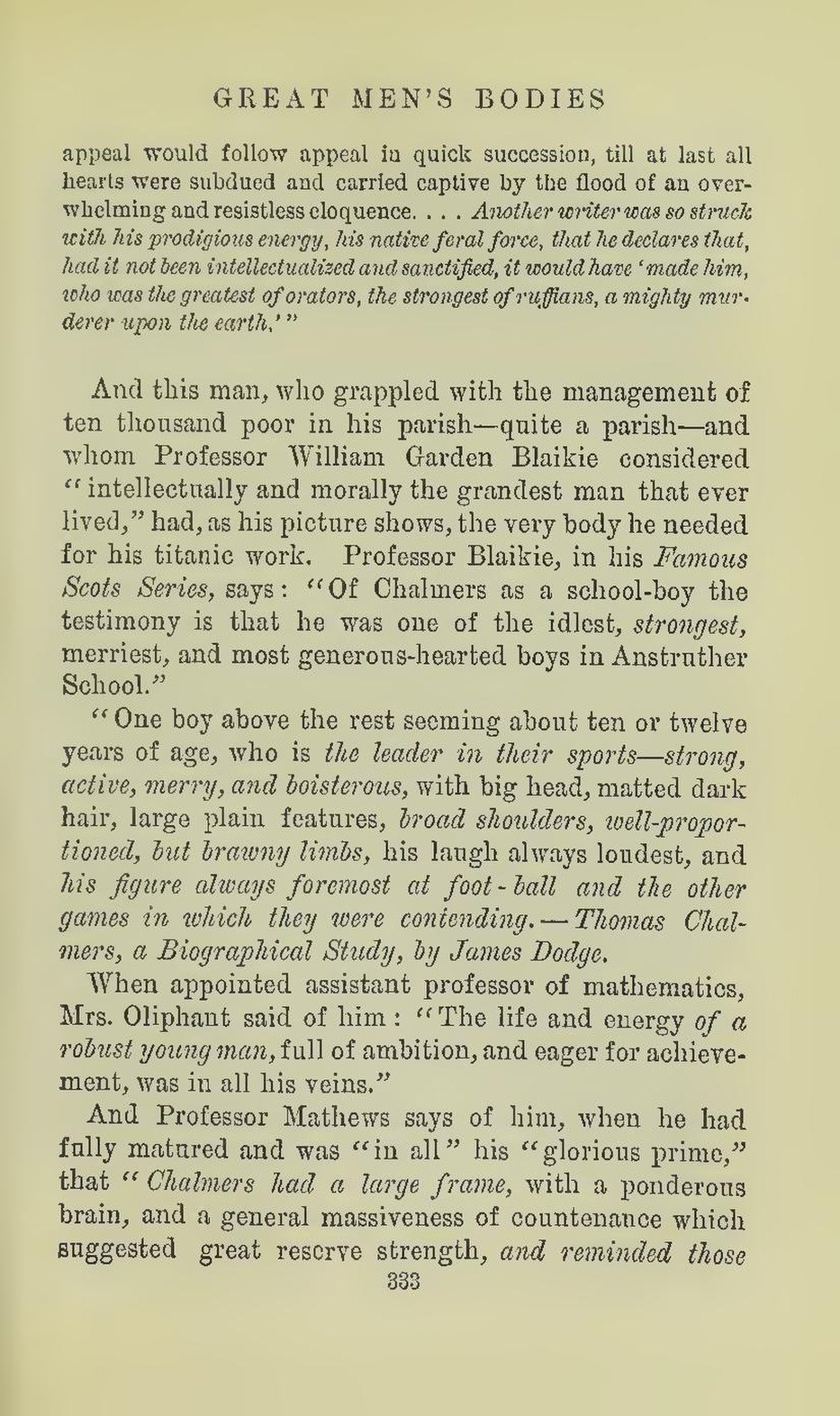GREAT MEN'S BODIES
And this man, who grappled with the management of ten thousand poor in his parish—quite a parish—and whom Professor William Garden Blaikie considered "intellectually and morally the grandest man that ever lived," had, as his picture shows, the very body he needed for his titanic work. Professor Blaikie, in his Famous Scots Series, says: "Of Chalmers as a school-boy the testimony is that he was one of the idlest, strongest, merriest, and most generous-hearted boys in Anstruther School."
"One boy above the rest seeming about ten or twelve years of age, who is the leader in their sports—strong, active, merry, and boisterous, with big head, matted dark hair, large plain features, broad shoulders, well-proportioned, but brawny limbs, his laugh always loudest, and his figure always foremost at foot-ball and the other games in which they were contending.—Thomas Chalmers, a Biographical Study, by James Dodge.
When appointed assistant professor of mathematics, Mrs. Oliphant said of him: "The life and energy of a robust young man, full of ambition, and eager for achievement, was in all his veins."
And Professor Mathews says of him, when he had fully matured and was "in all" his "glorious prime," that "Chalmers had a large frame, with a ponderous brain, and a general massiveness of countenance which suggested great reserve strength, and reminded those
333
